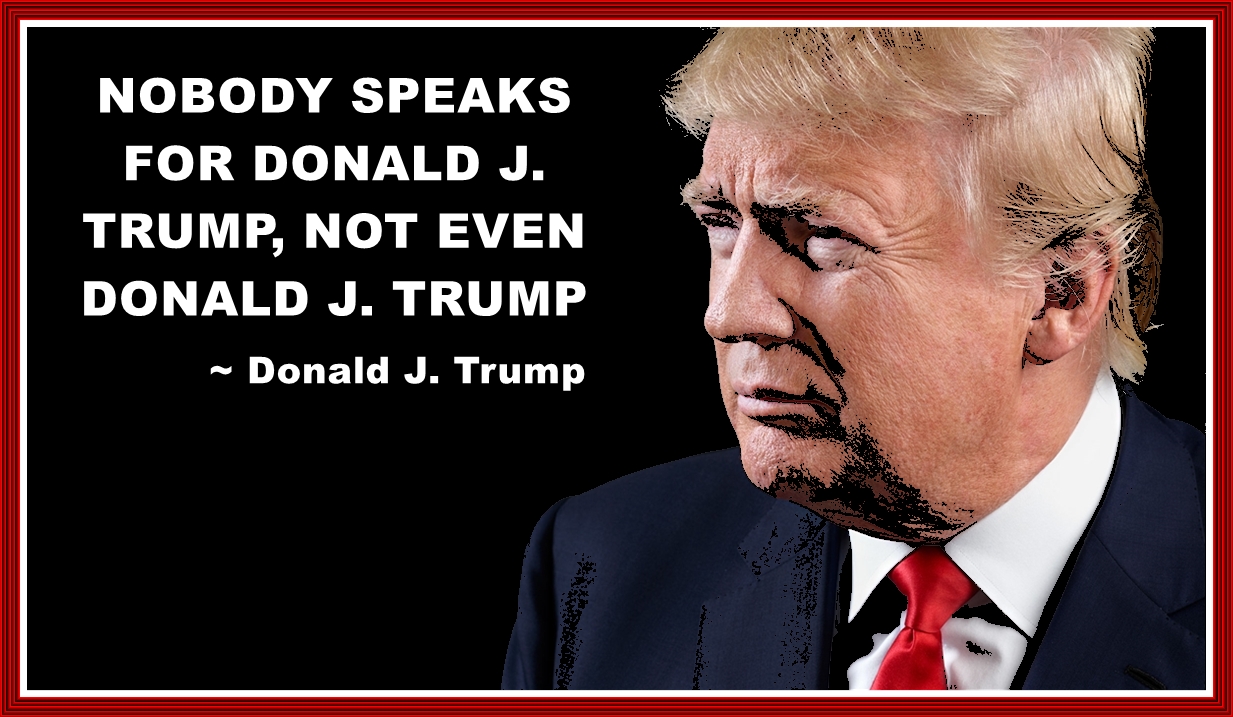There is little or no doubt that one of the greatest influences on the economic and geopolitical scene is President Donald J. Trump.
Few, possibly including the President himself, know what Trump is likely to do, either in the short-term, long-term, or as we have seen, moment-to-moment.
This type of uncertainty and instability is good for brokerages who benefit as the shifting positions produce maximum volatility and an acceptable cover story when proffered advice turns sour and client's lose money.
This type of uncertainty and instability is good for negotiations. With America's counterparties realizing that more extreme statements by the President may be a public relations ploy or simply another negotiating tactic. Consider all the brouhaha over the Presidential announcements relating to severe tariffs on steel, aluminum, and other products. Now we are finding out from Presidential surrogates that there will be exemptions for companies and countries depending on the re-negotiated individual deals.
Considering the Consequences ...
Unfortunately, this type of uncertainty and instability is bad for forecasts involving markets and future financing. Thus the tendency of companies to conserve cash and defer CAPEX (Capital Expenditure) investments or to expand their employee headcount. It is extremely difficult to offer a set price along with terms and conditions if one does not have a firm grasp on the costs of labor and materials that are required to fulfill long-term contracts. Or even the pricing of these contracts given forward currency fluctuations. You must decide for yourself, where any of the President's announcements are likely to lead.
But it is not all up to the President, Congress plays a role in the uncertainty and instability. Consider the healthcare industry. With consumer choices being driven by increasing insurance premiums and deductibles, the reduction in both private and government insurance reimbursement rates to facilities and physicians, and the demographic crisis linked to an aging population and a declining number of facilities, physicians, and diagnostic devices, planning for the future is extremely hard or next to impossible. Even technological gains and competition is unlikely to produce acceptable resolutions without some level of pain. And, none of those Members of Congress are likely to read or understand those 2000+ page bills that are crafted in secret by politicians responding to special interests and offered as a fait accompli.
The only solution is to engage in an effort to future-proof your life and career. One, by reducing the debt load that can dictate your decisions and keeps you from exploiting emerging opportunities. Two, by reducing the clutter in your life to ensure some degree of mobility and freedom of action. And three, by developing multiple independent sources of income that isolate you from unanticipated adverse events, be they health- or employment-related.
Keep asking yourself that question that is normally asked in the deep recesses of your mind: Am I Next?


